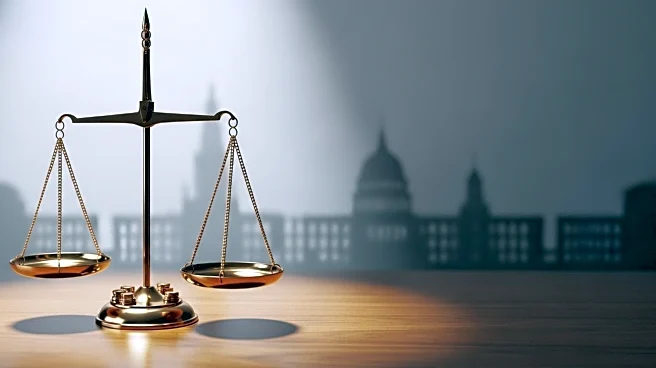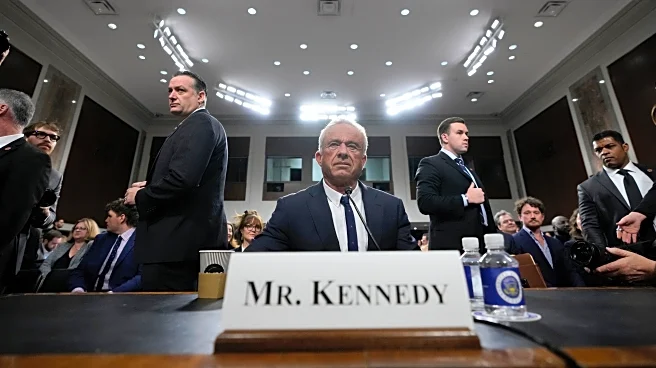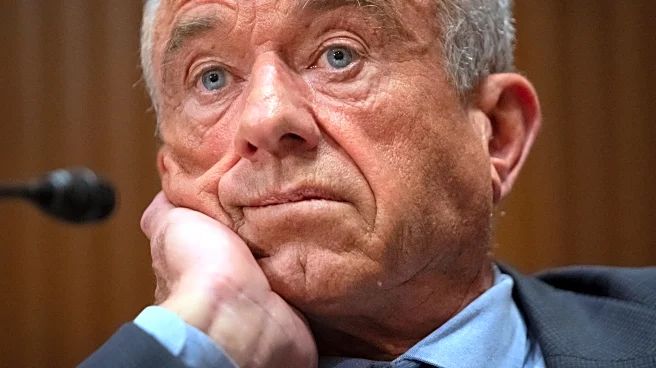What is the story about?
What's Happening?
A recent decision by the UK High Court has temporarily blocked the removal of a 25-year-old Eritrean man to France under the 'one in, one out' migrant returns deal. The man, who arrived in the UK on a small boat, claimed to be a victim of modern slavery, prompting the court to grant a 14-day pause for him to provide evidence. This decision challenges the UK government's approach to quickly deport migrants arriving via small boats, a policy intended to deter such crossings. The Home Office's trafficking assessors initially found the man's story weak, but the court's ruling has highlighted complexities in handling cases involving claims of trafficking and modern slavery.
Why It's Important?
The High Court's decision underscores the legal and procedural challenges faced by the UK government in implementing its migrant returns policy. The ruling could set a precedent for other migrants arriving via small boats to mount similar legal challenges, potentially undermining the deterrent effect of the policy. This situation reflects broader issues in immigration policy, where legal complexities and human rights considerations can delay or obstruct government plans. The outcome of this case may influence future policy decisions and impact the government's ability to manage immigration effectively.
What's Next?
The UK government may need to reassess its approach to the migrant returns deal with France, considering the legal hurdles highlighted by this case. The Home Office might face increased scrutiny and pressure to ensure that its handling of trafficking and modern slavery claims is robust and legally sound. Political leaders and stakeholders will likely continue to debate the effectiveness and ethical implications of the current policy, potentially leading to adjustments or new strategies to address immigration challenges.
Beyond the Headlines
This case highlights the ethical and legal dimensions of immigration policy, particularly concerning the treatment of individuals claiming to be victims of trafficking and modern slavery. The government's approach to balancing deterrence with human rights obligations may face criticism and require careful navigation to avoid public backlash and legal setbacks. Long-term shifts in immigration policy could emerge from ongoing legal challenges and public discourse.

















